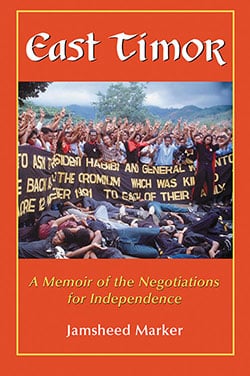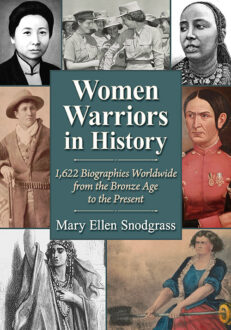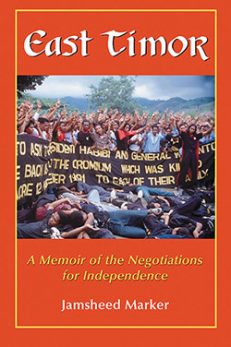East Timor
A Memoir of the Negotiations for Independence
$29.95
In stock
About the Book
Following the end of the Salazar dictatorship and the establishment of democracy in Portugal in 1975, East Timor declared its independence from Portugal, but a failure to transfer power in an orderly manner lead to a terrible civil war and military intervention by Indonesia. The United Nations condemned Indonesia’s occupation of East Timor and called for an “exercise of the right of self-determination by the East Timorese.” Finally, on October 31, 1999, after years of fighting and the deaths of more than 200,000 East Timorese, the last Indonesian troops left the country.
This is the memoir of Jamsheed Marker, Personal Representative of the secretary general of United Nations for East Timor, who was responsible for keeping the United Nations’ and Kofi Annan’s ideals at the forefront of the East Timor negotiations between Portugal and Indonesia. He tells the story, including all of the setbacks, false hopes, tragedies and silver linings, of the United Nations’ involvement in East Timor that brought about the international agreements enabling East Timor to go from being a colony to being an independent, democratic nation. He also shares the story of the remarkable people who have endured more than 300 years of neglectful and violent colonial occupation followed by 25 years of a neighboring country’s exploitative and brutal domination.
About the Author(s)
Bibliographic Details
Jamsheed Marker
Format: softcover (6 x 9)
Pages: 228
Bibliographic Info: photos, index
Copyright Date: 2003
pISBN: 978-0-7864-1571-7
eISBN: 978-0-7864-8121-7
Imprint: McFarland
Table of Contents
Introduction: Why Me? 1
1. Why East Timor? 7
2. Getting Acquainted: People, Places and Perceptions,
Part I (Lisbon: March through July 1997) 18
3. Getting Acquainted: People, Places and Perceptions,
Part II (Jakarta: March through July 1997) 24
4. East Timor (March through July 1997) 37
5. The Negotiations Commence (March through August 1997) 46
6. The Consultations Widen
(Geneva, Pretoria, Vienna, and London: August through November 1997) 56
7. Coming to Grips: The Negotiations Intensify
(Indonesia and East Timor: December 1997; Portugal: January 1998; London: April 1998) 65
8. Negotiations Continue in the Shadow of Indonesia’s Summer of Discontent (New York and Washington:
April and May 1998) 78
9. The Second Innings: Indonesia in Transit and Tumult
(New York, Lisbon, Jakarta, and East Timor: June and July 1998) 86
10. The Doctor’s Dilemma: The Negotiations Intensify, but So Does the Conflict
(New York, Vienna, and Lisbon: October and November 1998) 101
11. Sailing into the Squall
(Indonesia and East Timor: December 1998) 108
12. A Dramatic Decision, and an Opportunity Seized
(New York: January and February 1999) 121
13. Substantive Progress in Negotiations in New York; Ominous Signals from East Timor
(New York, Jakarta, and East Timor: February to April 1999) 132
14. Agreement Between the Republic of Indonesia and the Portuguese Republic
(New York: April and May 1999) 144
15. UNAMET and the Arduous Path to the Ballot
(New York, Jakarta, Dili, Sydney, and Canberra: May to July 1999) 161
16. The Popular Consultation in East Timor: The Ballot
(New York, Jakarta, and Dili: July and August 1999) 181
17. The Aftermath of the Ballot
(Dili, Jakarta, and New York: August 31 to October 31, 1999) 192
18. A Review, and Some Reflections 202
Epilogue 211
Index 217
Book Reviews & Awards
“East Timor’s story is a dramatic one, and few are better able to tell it than Marker, the U.N. special envoy who steered the tense negotiations…an inspiring account of how courageous leaders, a determined population and strong U.N. involvement overcame huge obstacles to create a democratic nation”—St. Petersburg Times.





